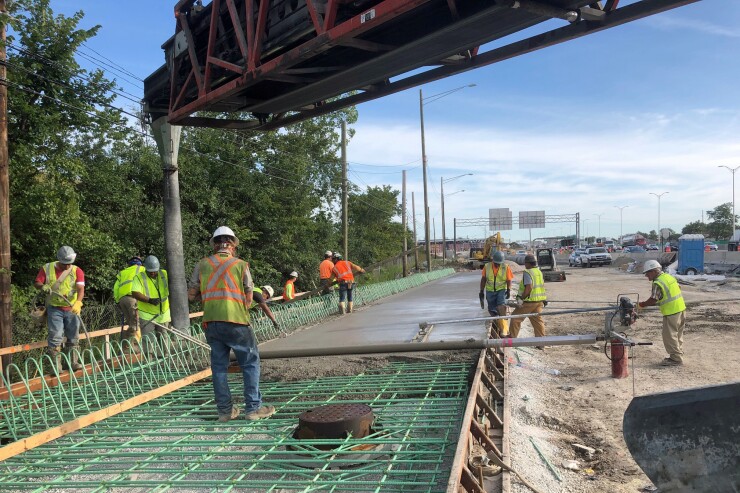The Illinois State Toll Highway Authority shed bank and derivative-related floating-rate risks in a $698 million refunding.
The refunding will move all of the authority’s roughly $6 billion of outstanding toll-backed bonds to fixed rate, a shift from the mix of 60% fixed to 40% synthetically fixed floating-rate about a decade ago.

“We wanted to reduce the exposure to some of those risks … but we wanted to do it at a cost that warranted doing the refunding,” said the authority’s chief financial officer, Michael Colsch, in a joint interview with his debt manager, William O’Connell. “We saw an opportunity given the current market to execute a refunding of the remaining amount at a minimum cost to the tollway.”
The deal that priced Dec. 10 refunded 2007 and 2008 debt and covered the $144 million negative valuation on the swaps. Citi ran the books. Hilltop Securities Inc. was municipal advisor. Pugh Jones Johnson was bond counsel.
Overall, the refunding results in a roughly 20 basis point cost addition to the debt, which the authority considers worth it for the elimination of future risks.
“The structure was working as we had hoped but I think long-term the appetite for risks modifies over time and we had done a review of what we thought was an acceptable additional cost to eliminate the risk," Colsch said.
The authority is rated AA-minus by both Fitch Ratings and S&P Global Ratings and A1 by Moody’s Investors Service.
The 10-year in the deal yielded 1.86%, a 44 basis point spread to the “early” Municipal Market Data AAA benchmark with the short end at an 18 bp spread and the 2031 bond at a 48 bp spread, according to MMD-Refinitiv’s market report on the day of pricing last Tuesday.
The spreads were wide to the double-A and single-A benchmarks as the authority pays a penalty like most Illinois-related credits, although the authority is insulated from state operations and toll revenue can only go to pay authority debt and operations.
The 2020 $1.54 billion budget approved by the toll board last month relies on two bond issues totaling about $500 million as the agency moves into the ninth year of its 15-year, $14 billion capital program. About $10 billion is for improvements and $4 billion for expansion projects.
The budget includes $380 million for annual maintenance and operations on the 294-mile system with the rest earmarked for capital.
The new money will come in two sales: one in the first quarter of 2020 and the second late in the year.
The authority’s bonds are secured by net tollway revenues that primarily come from toll collections, and the authority pledges to set rates at a level sufficient to repay debt.
The original 2011 capital program authorized $12 billion but the authority raised it to $14 billion in 2017. The tollway has issued $3.1 billion to fund the program with an additional $2.4 billion planned through 2024. The budget projects a $40 million increase in revenue over the current 2019 estimate. That’s due mostly to continuing increases in toll transactions along with a truck toll rate increase enacted by the board in 2008.
Rating agencies have made favorable comments about the authority’s steady reduction of floating-rate risks. In a report on the sale, Fitch said its rating “reflects the essentiality of the tollway system, evidenced by its long-term growing traffic base and moderate price elasticity. The rating further reflects ISTHA's prudent debt management with strong historical and projected debt service coverage ratios with a major capital program underway.”





